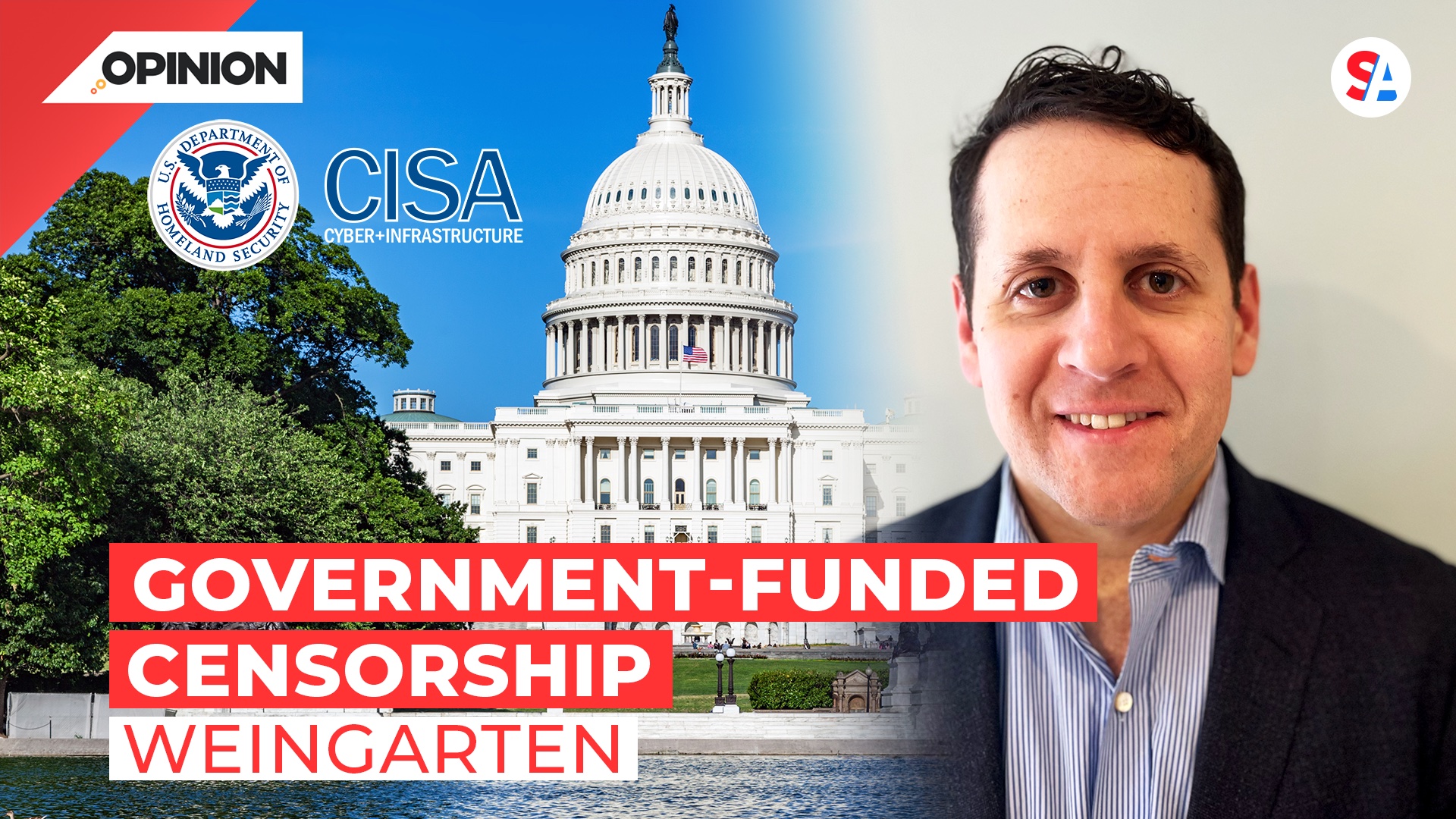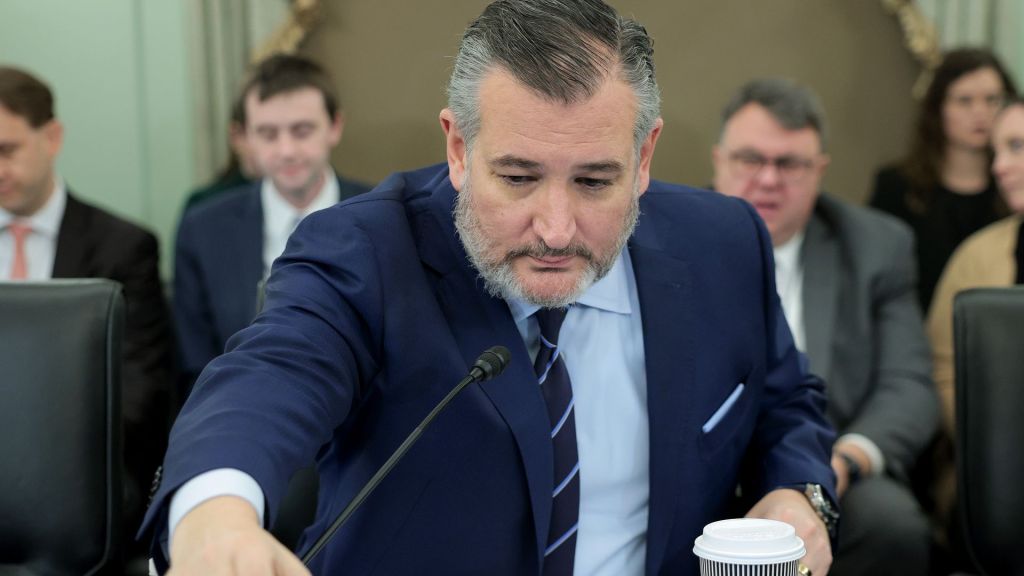
Commentary
-
Our commentary partners will help you reach your own conclusions on complex topics.
We’ve been paying the feds to silence ourselves and interfere in our elections, under a government-led Disinformation Industrial Complex. Maybe because it’s been exposed, one of the most integral agencies to this censorship regime has been covering its tracks.
Yet a recent hearing of the House Appropriations Committee did not focus on the agency’s censorship efforts, save for the questions of one congressman. That matters because the appropriations committee has unique power to hold agencies acting badly to account through its unique power over the purse.
If Republicans are committed to combatting the ongoing assault against the core of our First Amendment — political speech — one that could worsen as the 2024 election approaches, they must avail themselves of it. They must defund, or threaten to defund the censorship regime to force its dismantling. The agency in question is CISA, the Cybersecurity Infrastructure and Security Agency.
As disaffected liberal journalists Michael Shellenberger and Matt Taibbi, and Republicans Missouri Senator and former AG Eric Schmitt, Louisiana AG Jeff Landry, and Special Assistant AG D. John Sauer all detailed in recent hearings before the House Judiciary Committee’s Subcommittee on the Weaponization of the Federal Government, CISA is a key cog in the Disinformation Industrial Complex.
That complex, as we’ve discussed before, links the Deep State to Big Tech and myriad often government-funded and ex-government staffed “counter-disinformation” organizations. They’ve created a moral panic over “mis-, dis-, and mal-information” – MDM — which they’ve tied to threats to public health and safety, as a pretext to censor unauthorized opinions.
The plaintiffs in Missouri and Louisiana v. Biden, who testified recently before the Weaponization subcommittee, allege that the Biden administration cajoled and colluded with social media platforms to “suppress disfavored speakers, viewpoints, and content…under the Orwellian guise of halting,” what else, Mis-, Dis-, and Mal-Information in violation of the First Amendment.
The states call CISA the “nerve center” of federal censorship activities. A recent filing details its pivotal role in the censorship regime since its establishment in 2018, synthesizing a mass of discovery material and depositions from key parties.
It shows that CISA officials:
- Convene, coordinate, participate in meetings between national security and law enforcement agencies and social media platforms aimed at combating “misinformation” and “disinformation” – meetings that occur with increasing frequency in the run-up to elections. In 2020 meetings with Big Tech partners, CISA officials warned of hack-and-leak operations, grooming the companies effectively to kill the Hunter Biden laptop story.
- CISA Officials also “switchboard” reports of purported misinformation and disinformation from state and local officials, passing the reports to social media platforms for censorship – without determining whether the content creators are foreign or domestic.
- CISA Officials ping state officials with alerts about content CISA considers misinformation, which officials often flag for social media platforms to censor; these officials also fact-check “misinformation” reports for social media platforms and publish “debunks of social-media narratives, knowing…platforms will use this information to censor.”
- Last but not least, they partner with non-governmental entities, some of which CISA funds, to get around First Amendment censorship obstacles, flagging and conveying content for censorship to social media platforms through these cutouts.
- Most notably, CISA reports “misinformation,” so-called, to the Election Integrity Partnership – an “anti-disinformation” consortium conceived by and created “in consultation with” CISA officials, which passed millions of pieces of offending content to social media platforms that the platforms censored at high rates during the 2020 election.
What kind of content have these parties worked to censor? As we know, information concerning elections and the Chinese coronavirus, including points known by authorities to be true at the time they were censored, if they undermined authorities’ favored narratives.
CISA has also focused on “financial misinformation and disinformation,” so-called, and offending content around the Russo-Ukrainian War. According to the court filing it’s even pushed for censoring “supposed disinformation about CISA itself.”
The very day that filing hit the docket, Mike Benz, Executive Director of the Foundation for Freedom Online, reported that in the week prior, CISA had purged its website of references to its domestic censorship work.
On March 24, a couple weeks later, Taibbi and Susan Schmidt reported that CISA had just months earlier quietly disbanded an advisory subcommittee dealing with misinformation and disinformation core to its censorship efforts. Four days after that, CISA Director Jen Easterly came before the House Appropriations Committee, asking for a 22% increase in CISA’s budget next year, to $3.1 billion. CISA’s budget had already increased almost 44% over the prior three years.
Despite this ballooning budget, and requests for still more money, and how well-documented it is that CISA used those funds to fuel America’s public-private censorship regime — a conspiracy to violate the First Amendment that constitutes taxpayer-funded election interference — CISA’s speech policing was only the focus of one representative’s questions during the hearing.
Texas Republican Michael Cloud questioned Easterly on her agency’s role in the Disinformation Industrial Complex. To his questions, Easterly responded “We don’t censor anything…we don’t flag anything to social media organizations.” She added: “We are focused on building resilience to foreign influence and disinformation.”
By contrast, as Benz’s organization summarized its extensive findings about CISA, this “agency in charge of securing elections is also in charge of censoring elections.”
Neither CISA nor any government agency should be in this business. Nor should any government agency be weaponized against the public, in violation of our most fundamental rights. Americans should not pay a single cent more for our own silencing and subjugation.
-
Trump’s Jan. 6 pardons aim to restore liberty, justice
President Trump has defended his decision to issue pardons and halt prosecutions for the more than 1,500 individuals charged in connection with the Jan. 6, 2021 Capitol attack. The pardons included violent extremists who had been convicted of assaulting law enforcement officers and of plotting sedition against the United States. Some Republicans — and even… -
Trump, Congress must protect First Amendment
During the COVID-19 pandemic, federal government agencies began corresponding with private social media companies like Facebook to regulate sensitive public health information and to suppress certain COVID-19 misinformation which they believed could present an existential threat to U.S. public health. Some Americans felt that this relationship went too far, however, saying that it violated the… -
Is Meta’s free speech overhaul a power play or real change?
On Jan. 7, Meta CEO Mark Zuckerberg announced major changes to the company’s content moderation policies. He pledged to “get rid of fact-checkers and replace them with Community Notes similar to X.” Supporters of Zuckerberg’s pivot view this as a win for the First Amendment, promoting more free expression on the platform. Critics, however, argue… -
Trump must confront jihadism and Islamist supremacism
At least 14 revelers celebrating New Year’s on Bourbon Street in New Orleans have died after 42-year-old U.S. Army veteran Shamsud-Din Jabbar used a rented Ford pick-up truck to run over as many civilians as he could. The FBI is classifying this as a deliberate act of terrorism. The suspect, heavily armed and wearing body… -
DOJ spied on Congress during ‘Russiagate’ investigation
A report from the Department of Justice’s (DOJ) Office of the Inspector General reveals that, during President-elect Donald Trump’s first term, DOJ personnel misled courts to obtain gag orders, preventing federal employees from knowing they were under surveillance in the “Russiagate” investigation. The report concluded that seeking the records of congressional staffers did not violate…
Latest Opinions
-
 Getty Images
Getty Images
Newsom announces LA Rises initiative to help rebuild in wake of deadly wildfires
-
 Getty Images
Getty Images
Fed pauses rate cuts in first interest rate decision since Trump took office
-

How many federal employees will flood the job market with Trump’s ‘resign’ offer?
-
 Getty Images
Getty Images
PETA suggests replacing Punxsutawney Phil with a ‘weather reveal’ cake
-

Federal employees urged not to accept Trump’s resignation offer
Popular Opinions
-
In addition to the facts, we believe it’s vital to hear perspectives from all sides of the political spectrum.






